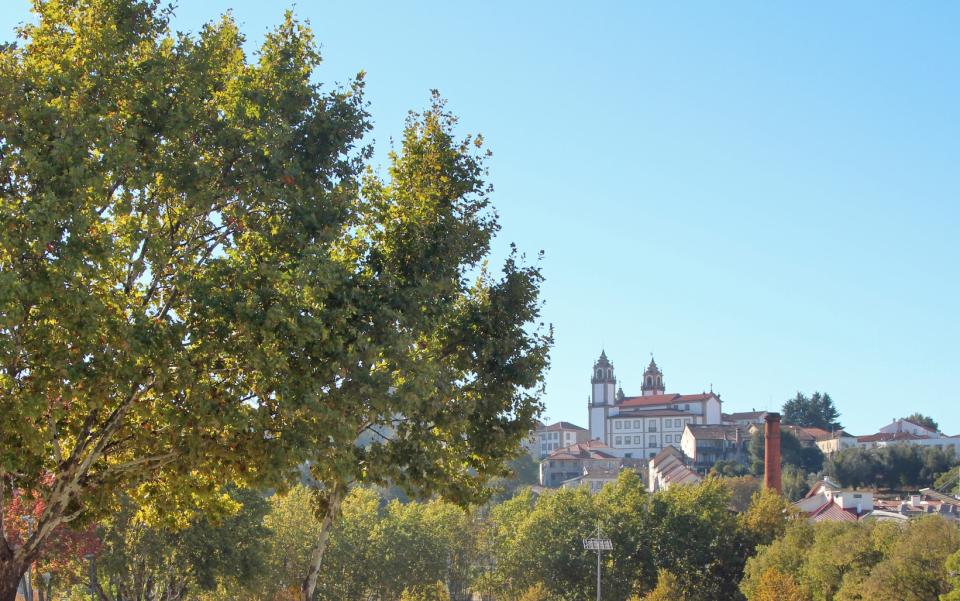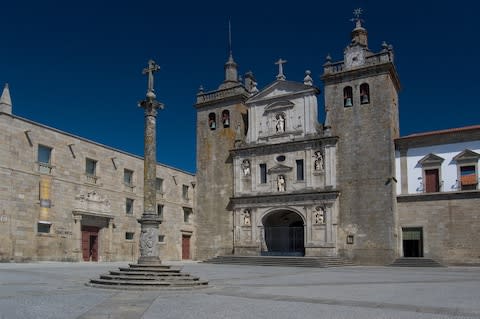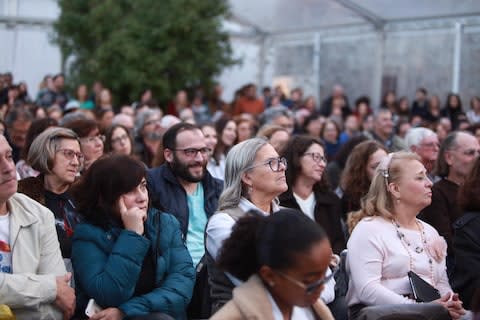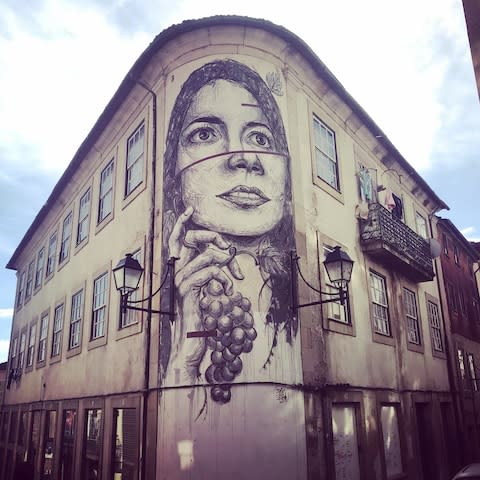How an obscure Portuguese city is trying to become famous

The small Portuguese city of Viseu boasts everything you want in a tourist destination: friendly people, clean streets, mountain sunsets, Roman remains, an incredible cathedral, and more parks than you can shake a stick at.
Historically, the only thing missing has been... tourists. Today, that’s changing. Since 2013, the number of overnight visitors has doubled to more than 250,000 per year.
The city’s secret? Arts and culture. Five years ago, Viseu elected a new mayor who had a twofold plan for the city’s future – attracting cutting-edge tech firms and stimulating cultural tourism.
Deals with the likes of IBM and telecoms giant Altice are making good the first pledge. To deliver the second, he has signed off a multi-million euro culture and tourism budget and appointed a dynamic director to oversee its expenditure.
Viseu is now very much “on the map” as a cultural city break destination, says Jorge Sobrado, the aforementioned director: “Portuguese visitors have been rediscovering the city again, while foreign visitors are finding out about us for the first time.”
So, how has the turnaround come about? And what lessons might Viseu have for other low-profile, yet high-potential, destinations?

Pick your theme
First off, everywhere has something – however odd or left-field – that makes it stand out. Cultural tourism boils down to identifying what that distinguishing spark is and then finding creative ways to celebrate it.
Viseu doesn’t have to look far. Located in the heart of Portugal’s Dão region, its granite soils and distinctive micro-climates make for fabulous vine-growing country. Unlike Portugal’s better known wine regions, such as Alentejo or Douro, viniculture here is still mostly small-scale and familial.
“When you visit a vineyard here, you are not met by a PR person or a guide. Here, it’s the owners themselves who greet you and show you around – there’s nothing flashy, it’s all very authentic,” says Carlos Alves, an academic historian and guide with the local tour operator Neverending.

‘Authentic’ is the key word. Twice a year, Viseu runs a wine festival over a long-weekend, where visitors can meet face-to-face with the best of Dão’s wine producers – the folk behind labels such as Quinta de Perdigâo, Soito Wines, Udaca, and Adega de Penalva, to name just a few. Few if any of their wines will be found on supermarket shelves, so there’s an “insider” feeling to the whole experience.
For smaller-tier towns and cities, the quirkier and more off-beat the cultural proposition, often the better. The town of Finestrat in Spain, for example, has a huge annual street festival to celebrate the paella. In Gilroy, California, it is garlic that pulls in the crowds. In the tiny Caribbean island of Nevis, mangos.
Food, as the list indicates, represents a common cultural denominator. As the famous Portuguese poet, Fernando Pessoa, once wrote: “Look, there’s no metaphysics on earth like chocolates”.

Make it fun
High art works for some. Locations like Glyndebourne in the UK or Bayreuth in Germany have traded off their links to the classical cannon.
But even those with refined tastes enjoy a bit of fun, argues Jorge Sobrado. Certainly, the atmosphere in Viseu is anything but rarefied. Its wine festivals are dotted with live music and theatre, parties and playfulness.
For the last four years, the city has also accompanied its winter wine weekend with a book festival. Again, Tinto no Branco is designed to be accessible to all. Talks about Shakespeare happen alongside children’s workshops; poetry readings alongside author interviews (Joanne Harris of Chocolat fame was on the stage this year).

The city’s annual events programme evokes the same combination of cultural richness with family fun. In May, for instance, painters descend on Viseu as part of its Street Art Festival. Back in July, meanwhile, the city hosted Europeade, Europe’s largest folklore festival as part of a year-long celebration of the region’s folk culture.
By far the biggest draw, however, is the 39-day São Mateus Fair in August and September. Dating back to 1392, the city reinvigorated the fair a few years ago as an opportunity to showcase the region’s gastronomy, handicrafts and music.
“São Mateus attracted 1.2 million visitors this year – that makes it the most popular cultural event in Portugal,” says Mr Sobrado.

Get yourself organised
As creative and entertaining as culture and arts can be, the tourist market is a competitive one. Why go to Viseu for a weekend when you could be golfing in the Algarve or travelling the trams of Lisbon?
Good organisation counts for a lot here. Knowing the events will happen on time or that the booking office will have a note of your order can make all the difference between a frustrating experience and a fantastic one.
“It all looks very glamorous when you’re sitting in the audience watching authors speak or musicians perform, but behind the scenes there’s a huge task list of things that need to be done,” says Paulo Ferreira, founder of Booktailors, an event organiser and publishing consultancy.

Booktailors was called in by Viseu to manage the logistics of the city’s book festival – a job the bibliophile outfit also carries for eight other towns and cities in Portugal, as well as for Cape Verde.
“It’s perfectly possible for a city hall to do it themselves, but events likes these are our expertise. We know all the publishers, the writers, the agents. Assisting municipalities organise cultural festivals is what we do,” Mr Ferreira adds.
Hay Festival in the UK boasts a similar prowess. After more than three decades, the team behind the nation’s biggest literary festival knows the ins and outs of event management intimately. For the right fee, it’s only too happy to share its insights with others around the world.

In the busyness of marketing and publicity, logistics and planning, it’s easy to forget one critical audience: local residents themselves. Not only do they generally make up a good chunk of your audience, but they are also the ones to open their arms (or not) to foreign visitors.
The very best examples of cultural tourism – think of the Edinburgh Fringe Festival, Rio Carnival or Mardi Gras in New Orleans – is where visitors lose the ‘tourist’ tag and feel one with the crowd.
Art and culture are almost unique in this ability to bridge barriers – that and a love of chocolate, of course.

